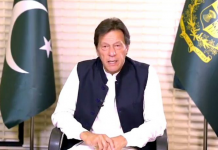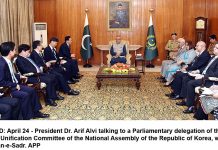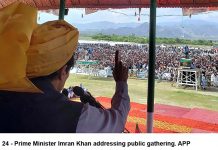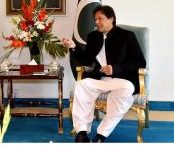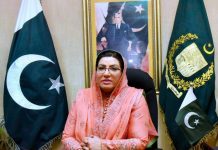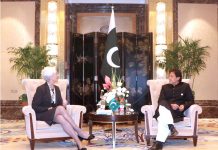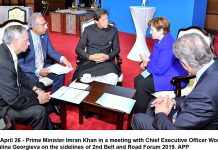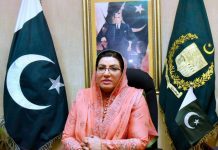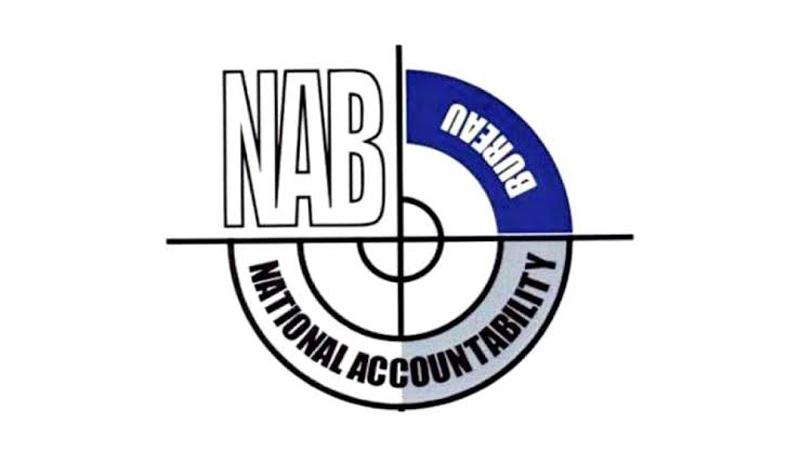
The draft bills are related to amendments in the Anti-Terrorism Act (ATA), 1997, the United Nations Security Council (UNSC) Act, 1948, and the NAB Ordinance 1999.
“Opposition parties told the government they are willing to join the debate if the bills are in the public interest and in line with the Supreme Court’s directions,” PML-N leader Shahid Khaqan Abbasi told media alongside PPP leader Sherry Rehman, after the opposition staged walkout from a parliamentary committee meeting with the government. “A committee of the parliament [to debate] on these bills was formed – which I think is a unique instance because such a committee was perhaps formed over the 18th Amendment but never in any other situation – so these bills were taken very seriously,” he said. “All four of these bills were to be simultaneously passed in the National Assembly before going on into the Senate,” he added.
The former prime minister claimed that the amendment in the ATA is “so frightening that we told [the government] that if passed, then Pakistan would not remain a democracy but would turn into a horrible dictatorship.” After arguments from both sides on the changes sought by the government, the bill was, however, withdrawn, he said.
With regard to the UNSC Act, the PML-N leader said it was approved after some amendments the opposition had suggested were accepted. He said the amendment to the NAB Ordinance 1999, however, was the ‘same ordinance’ that the government had passed earlier. It also included a clause on the ‘extension of service’ of the chairperson and vice chairperson of the anti-graft watchdog but was later withdrawn. “The remainder of that amendment was the same as the ordinance presented earlier but had an addition that was totally against the Qanun-e-Shahadat [Law of Evidence], so we told the government that that, too, was unacceptable,” he added.
Abbasi mentioned that a smaller committee was then formed to pour over the amendments to the NAB Ordinance 1999 section by section before finalising a new draft. In a meeting on Monday, the opposition then put forth amendments in each section that they believed were in accordance with justice, the Supreme Court’s observations and prior directives, and the Council of Islamic Ideology’s (CII) decisions, to which the government responded it would apprise of its stance a day later. In Tuesday’s meeting, however, the government informed the opposition that it did not agree with the latter’s proposed amendments.
“We questioned which amendments they had an issue with, but they didn’t have an answer. So we said that if they can’t talk on the amendments in good faith, when they were the ones to bring the bills, then we can’t move forward,” he said. “Because the government isn’t talking in good faith and because their intentions, I don’t think, are for working in national interest, we walked out of the meeting,” he added.
“They did not have a response to that. So we said, ‘If you are not speaking of these amendments in good faith – you were the ones who came up with this bill – then we can’t go forward,’ and excused ourselves from that meeting,” the former PM explained. “Our decision now is that all [Opposition] parties will consult and it’s our recommendation that whatever talks take place should happen from the forum of the APC [All Parties Conference],” he concluded.
Shortly before the walkout, Foreign Minister Shah Mehmood Qureshi spoke in the National Assembly, saying the NAB will become meaningless if recommendations of the opposition are implemented. “The draft of the opposition wants money laundering removed from the jurisdiction of the NAB. If that happens, the anti-graft watchdog will become meaningless,” he said. “The government wants to get Pakistan off the grey list of the FATF, therefore urgent legislation on four bills is necessary,” he said, adding that FATF’s three requirements are transparency, accountability and cooperation with international organizations.
The foreign minister said that the opposition had been invited to sit together for legislation but the opposition suggested 35 amendments to the NAB law, which were presented to Prime Minister Imran Khan. He said the opposition should review and reconsider their demands in the best interest of the country. He, however, made it clear that the government has no intention to extend tenure of the incumbent NAB chairman.

